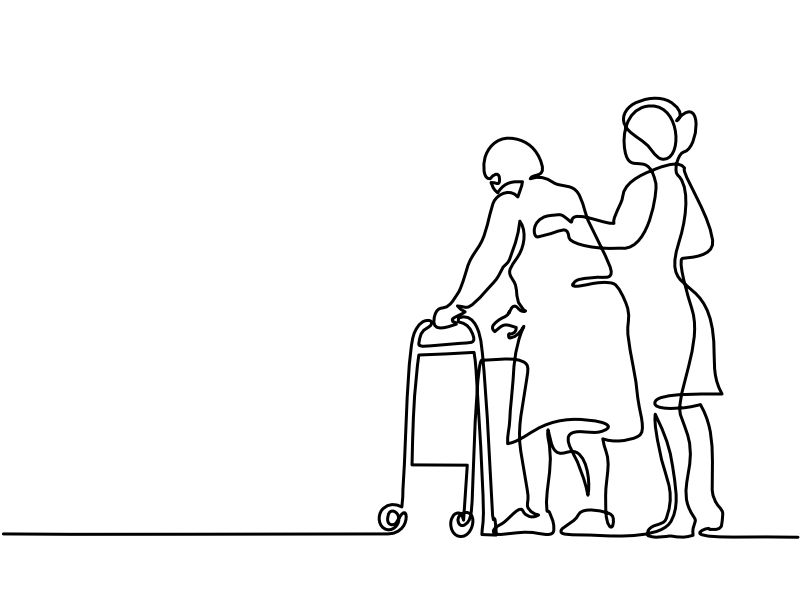A Message From Caregivers: Vaccines or Formaldehyde? The Choice is Yours
As we navigate through what feels like an eternal pandemic, many communities have been covered and applauded for their efforts and resilience to the pandemic. Scientists, medical workers, community leaders, essential workers to name a few groups. One group, however, relented through the pandemic unrecognized — caregivers.

Speakers
- Noella Buchanan, Caregiver Coordinator, Southern California Conference AMEC Ministerial Alliance (Retired Pastor)
- Kennedy King, first-place winner of a rap contest promoting vaccines
- Ruth Rembret, Caregiver
- Donna Benton, Director, USC, Family Caregiver Support Center
- Cheryl Brown, Chair of the Social Action Committee of St. Paul’s First AME Baptist Church-San Bernardino, former state assemblywoman for the 47th District.
Caregivers, during the duration of the pandemic, were not classified as essential workers putting them at a disadvantage. According to Dr. Donna Benton, the hardest part for caregivers was the lack of resources. Limited accessibility to wipes, medical supplies, cleaning supplies, masks, vaccines put caregivers in a tough spot as they took care of immunocompromised patients. Caregivers must take care of not just the patients, but their households as well. Anyone could be considered a caregiver — a teen as young as 14 years of age to a senior in their 70s.
As COVID-19 infection rates surge again with the highly transmissible Omicron variant, caregivers from around the state of California share how they are navigating the latest phase of the pandemic, steps they are taking to combat isolation and fatigue, and promoting vaccinations to the hesitant. Caregivers in our communities make up an invisible workforce of about 5.3 million people nationwide—an indispensable backbone for health care services in the U.S.
All the speakers resonated the same message: not getting the vaccine and not following safety protocols is like playing Russian roulette with everyone’s lives. Not just their own life, but the people around them. Speakers reiterate the importance of giving the right education to the vaccine hesitant. In this briefing caregivers and a Gen-Z community member shares ways to promote the right message to the right audience.
Caregivers, now exhausted by the last two years, share different messaging tactics to promote vaccinations and masking. One approach is to give a clear and concise message. As Ruth Rembret puts it, one has two choices when it comes to the COVID-19 vaccines. One can either have the vaccine go through their veins or formaldehyde in their veins. The choice is theirs. Another approach is to share the facts and gain their trust. Rev. Noella Buchanan highlights the importance of trust and vaccines due to historical distrust with past vaccines. Buchanan states that it is the caregiver’s responsibility, to be honest with their patient and share the overall impact of the vaccines along with the potential side effects it may have. She also specified that it is important to share that although the vaccine doesn’t make one completely immune to the virus, the vaccine will save you from potential hospitalization or death. Support groups and the faith community should also encourage people to get vaccinated and mask up in settings where necessary. These strategies are mostly for the seniors of our community and the youth require a different approach.
Kennedy King is a 22-year-old who won a music contest for rapping the importance of the vaccine. She reveals that young people don’t necessarily listen to news outlets or ‘old’ people. For them, social media influencers, artists, and friends are their go-to sources for information. The youth also listen to their parents, sometimes. King chose to rap the importance of the vaccine because she believes that most youth can connect well with music. Music makes the subject matter light without the overwhelming feeling of information overload. Her rap aims to make getting vaccines fun and keep the youth engaged. King also highlights that on a more emotional approach, we can appeal to the youth by pointing out the importance of participation in vaccinations. The majority of the youth understand that even if they don’t care about themselves getting the virus, they should at least care enough for their elders – grandparents and parents. For the vaccine-hesitant, however, this is a possible approach to persuade them to get vaccinated.
Ultimately, every expert, every community leader, every doctor, every scientist, and every caregiver amplify the same message: we are tired of this pandemic, and we need a break. We must get fully vaccinated with the boosters and follow safety measures for a better tomorrow.


